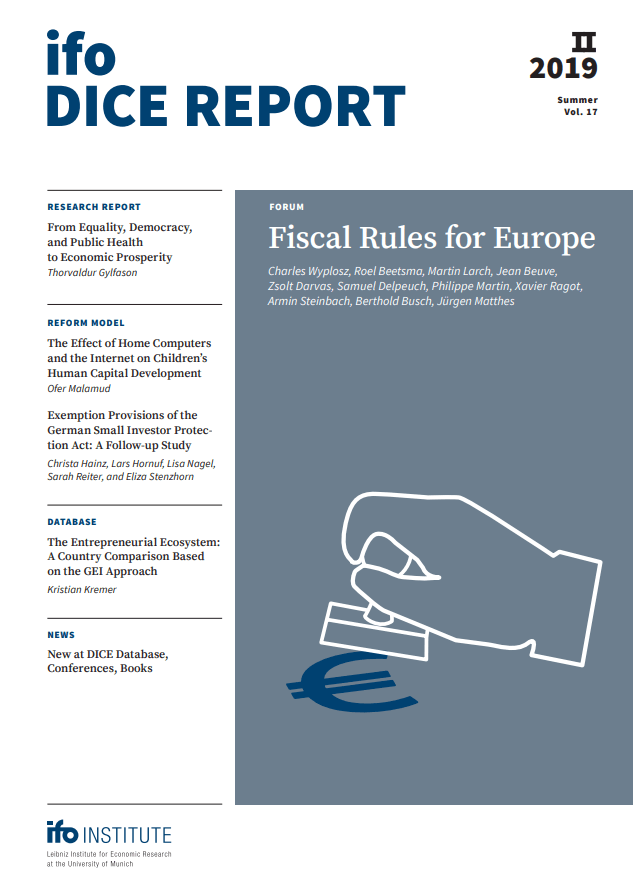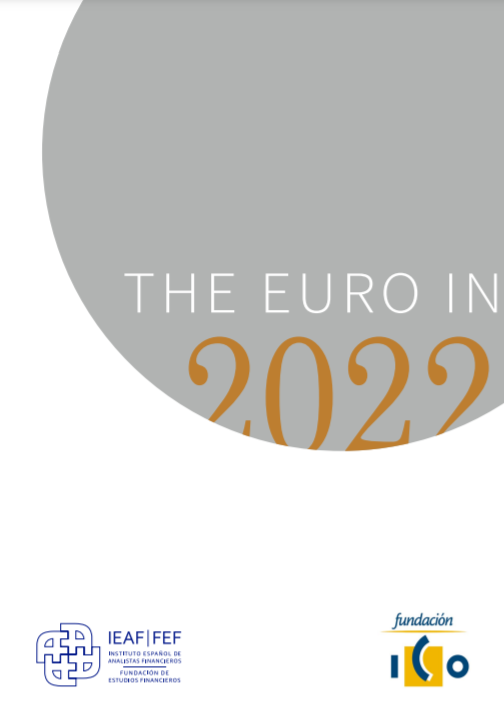External Publication
Simple Rules for Better Fiscal Policies in Europe
Proposals to reform the euro area are on the agenda again. An overhaul of the complex set of European fiscal rules should be top priority on this agenda because the fiscal framework in place suffers from clearly identified problems: rules are complex (therefore difficult to internalise for policymakers), pro-cyclical (therefore potentially destabilising), and noncompliance is the norm (therefore not credible).
Either because countries did not abide by the rules or because the rules were not sufficiently stringent during good years, there was insufficient debt reduction in many countries in the 2000s, and this reduced fiscal capacity during bad years. Consequently, several countries experienced excessive fiscal austerity during the crisis, contributing to the aggravation and prolonging of its consequences. A major drawback of these rules lies in measurement problems. The structural budget balance (the budget balance cleaned from the impact of the economic cycle and one-time budget measures like bank rescue costs), which is the cornerstone of current rules, is a useful theoretical concept but it is not observable and its estimation is subject to massive errors. The typical annual revision in the change of the structural balance is larger than half a percent of GDP, while half a percent of GDP is the baseline fiscal adjustment requirement for countries in breach of EU fiscal rules. Alone, such huge revisions highlight that this indicator is not suitable for policymaking.
The policy mistakes generated by the fiscal rules also led to overburdening the ECB as the main remaining stabilisation instrument. The fiscal framework has also put the European Commission in the difficult position of enforcing a highly complex, nontransparent, and error-prone system, exposing it to criticism from countries with both stronger and weaker fiscal fundamentals. The rules are used as a scapegoat by anti-European populists because they are seen as a centralised micro-management that infringes on national sovereignty.
However, in a monetary union like the euro area, arguments exist to justify the existence of fiscal rules and the adoption of a common framework. A specific issue in a monetary union is that governments may not fully internalise the risk of accumulating public debt. The reason is that they (and markets) may expect a bailout in case of difficulties to finance themselves. Indeed, a debt restructuring event accompanied by exit risk may generate financial disruption, contagion to other countries, and collateral damage so large that other members of the eurozone prefer a bailout. This implies that the no bailout rule is not fully credible in the eurozone (see Gourinchas, Martin, and Messer 2019) and this itself is a reason why a fiscal rule that binds all members of the monetary union is necessary.
In addition, expected bailouts may also have reduced market discipline in the sense that the cost of borrowing for some countries may have been too low in the period before the crisis. This may also have reduced the incentive for fiscal prudence, as was the case in Greece in the 2000s. Note, therefore, that debt sustainability, not public deficit per se, should be the core objective in the EMU. Note also that macroprudential rules that limit the vulnerability of financial institutions are a necessary complement to fiscal rules, as we have seen (for example in Ireland and Spain) that bank debts can rapidly be transformed into public debts.
Finally, because countries in a monetary union loose the monetary instrument to stabilise the economy against asymmetric shocks, the fiscal instrument is a key countercyclical policy tool. Hence, fiscal rules in the EMU, more than in countries with independent monetary policy, must play a countercyclical role. However, fiscal rules are not a silver bullet and cannot substitute the national democratic debate on fiscal choices and debt sustainability. Instead, they should help frame this debate. In particular, it is important that fiscal rules do not impose a low or high permanent level of public spending, or a low or high permanent level of taxation. This should be left to the democratic debate. However, the fiscal rules should be such that the levels of public spending and taxation are consistent and generate a sustainable level of public debt. If we agree on the necessity to change the rules, how should this be done?












